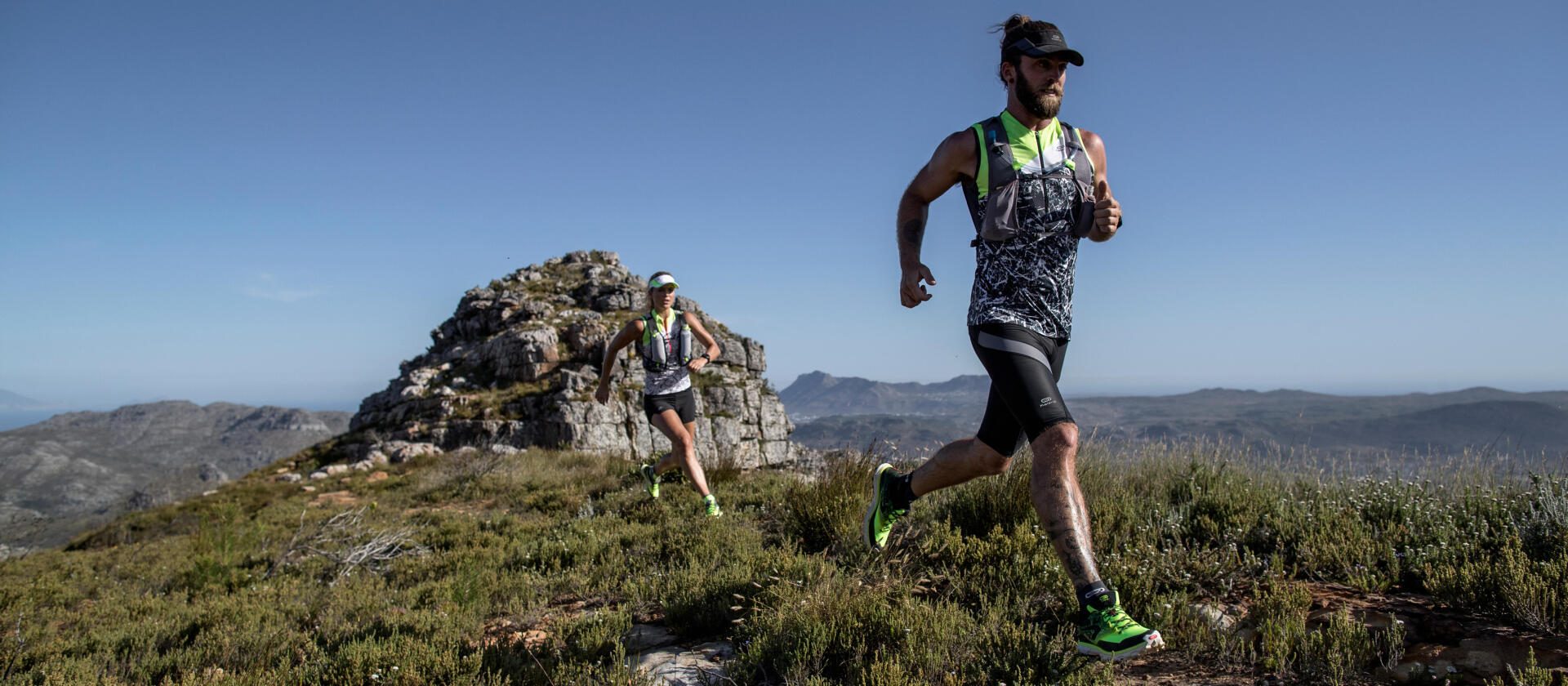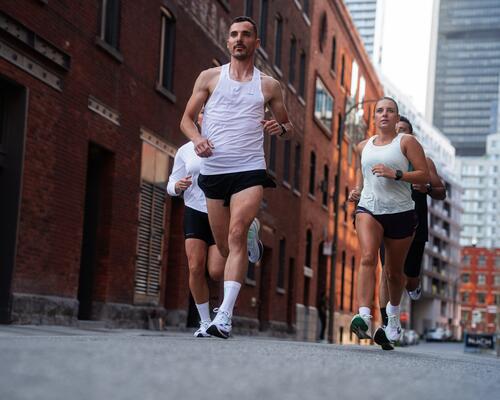Before
The food you eat during the week prior to your trail run will play a significant role in defining your physiological condition on the day of the race. Here are the objectives:
- Top up your glycogen reserves (glycogen is the means by which glucose is stored in the muscles and liver).
- Maintain perfect hydration.
- Avoid or reduce problems with digestion.
- Avoid any vitamin and mineral deficiencies.
During an intense and/or prolonged physical activity, such as the trail run, your glycogen reserves will determine how long you can maintain a high level of effort.
Glycogen reserves depend on the following:
- Your diet: the carbs in your diet are what will be used to synthesise glycogen.
- Your training level: a trail runner with more training will have a greater capacity to store glucose in the form of glycogen.
- Your hydration: You need 2.7 mL of water to store 1 g of glycogen.
From D-7 to D-5, reduce your carb intake slightly so that your muscles start to "demand" more carbs. Then, between D-4 and D-2, gradually increase your carb intake again until D-1 when your diet should be back to normal in terms of quantities. Take care to avoid food that you find more difficult to tolerate (if in doubt, drink less milk and eat less dietary fibre). Always drink plenty of fluids (2 L per day, preferably with maltodextrin).



